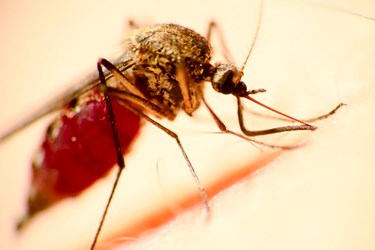Burnet Scientists ID Proteins For Malaria Vaccines

The Burnet Institute reported that several of its researchers have identified a group of proteins that has the potential to be the cornerstone of new diagnostics and vaccines against malaria.
Dr. Freya Fowkes, Dr. Julia Cutts, and Professor James Beeson from the Burnet Institute worked in partnership with Paul Agius from the Centre of Population Health and Centre for Biomedical Research and Associate Professor Julie Simpson from the University of Melbourne to identify the proteins. These immunological markers were found to be produced by malaria parasites during their incubation stage in the liver and when they had migrated to the blood. According to the researchers, the proteins can be used to induce immune response and may even protect people from malaria infection and sickness. The discovery supports the development of novel sero-diagnostic tools and vaccines aimed against the liver and blood phases of malaria.
Dr. Fowkes, Head of Malaria and Infectious Disease Epidemiology, identified malaria caused by Plasmodium vivax as the leading cause of the disease worldwide, especially in the Asia-Pacific region. “Malaria not only represents an enormous health burden, but it also has a profound impact on social and economic development in malaria endemic countries. We urgently need new tools and control measures, such as diagnostics and vaccines to reduce the burden of malaria and move towards elimination and eradication of the disease.”
The findings were published in a paper entitled ‘Immunological markers of P. vivax exposure and immunity: A Systematic Review and Meta-analysis’ in the journal BMC Medicine.
In addition to this recent discovery, the Institute recently engaged in a new partnership to help further vaccine development efforts. In July, the company partnered with Artes Biotech to develop a new vaccine against malaria using Artes’ vaccine production platform, Metavax.
Efforts against malaria have been gaining momentum this year. GlaxoSmithKline and Path Malaria Vaccine Initiative have been working on a new malaria vaccine that has demonstrated roughly 80 percent efficacy in protecting inoculated children against the disease. Similarly, earlier this month, two other companies entered into a malaria product collaboration. French firm CleveXel Pharma and Chinese company Guilin Pharmaceutical said they will work together to jointly develop two new anti-malarial products, which will include an adult and pediatric formulation.
